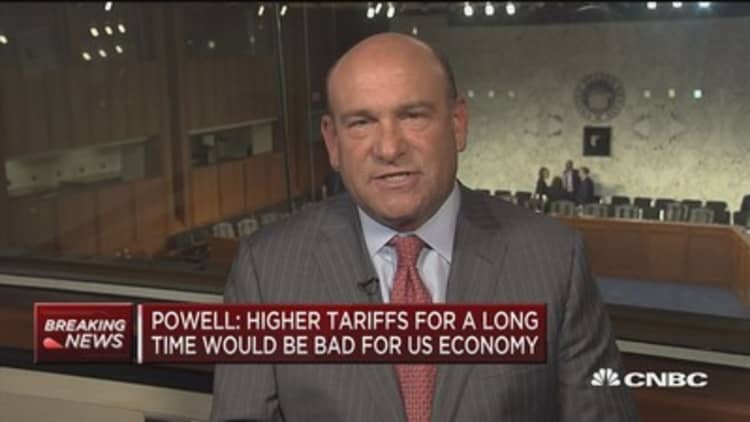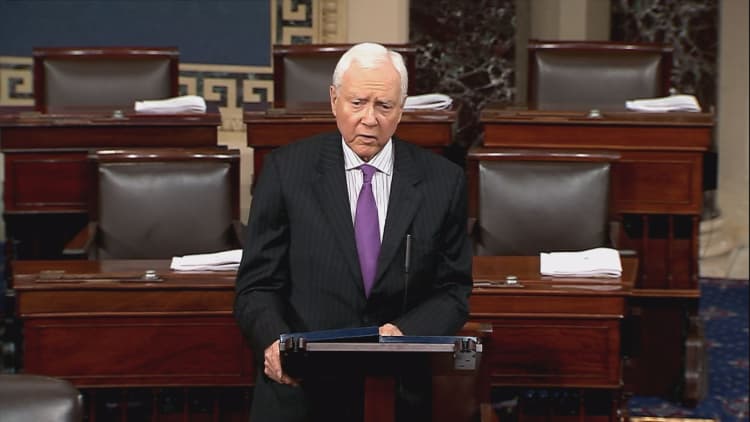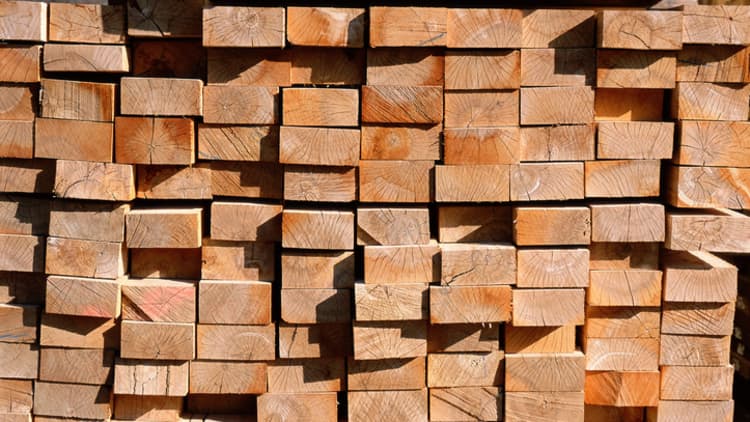
Federal Reserve Chairman Jerome Powell waded gingerly into the debate over tariffs, saying that countries embracing protectionism fare worse than those that are more open.
Asked during Senate testimony Tuesday about what impact tariffs have on growth, the central bank chief did not directly address policies that have led to a burgeoning global trade war.
However, he did speak in general terms and said the prognosis for protectionism is generally not good.
"In general, countries that have remained open to trade, that haven't erected barriers including tariffs, have grown faster, they have higher incomes, higher productivity," Powell said. "Countries that have gone in a more protectionist direction have done worse. I think that's the empirical result."
Trade has become one of the big hot-button issues for the economy in 2018.

The Trump administration has levied a wide range of tariffs against goods both from China, a longtime U.S. nemesis, as well as allies in the European Union, Canada and elsewhere. Some of those countries in turn have instituted retaliatory tariffs.
Fed contacts have reported concerns around the issue, with some noting that they are holding back on investment while the trade war escalates. That includes potential wage increases, which the Fed has been watching closely.
Trade uncertainty "may well be" a factor in companies holding back on wage increases, Powell said in response to a question from Sen. Pat Toomey, R-Pa.
"We've heard a rising chorus of concern, which now begins to speak of actual capex plans being put on ice for the time being," he said.
Powell noted the substantial uncertainty after earlier saying that the U.S. economy otherwise is seeing robust growth.
"It's hard to say what the outcome will be. There's really no precedent for this kind of broad trade discussions," he said. "Hard to know where that comes out. If it results in lower tariffs for everyone, that will be a good thing for the economy. If it results in higher tariffs across a broad range of traded goods and services and remains that way for a longer period of time, that will be bad for our economy and other economies, too."
WATCH: How tariffs are impacting the lumber industry



